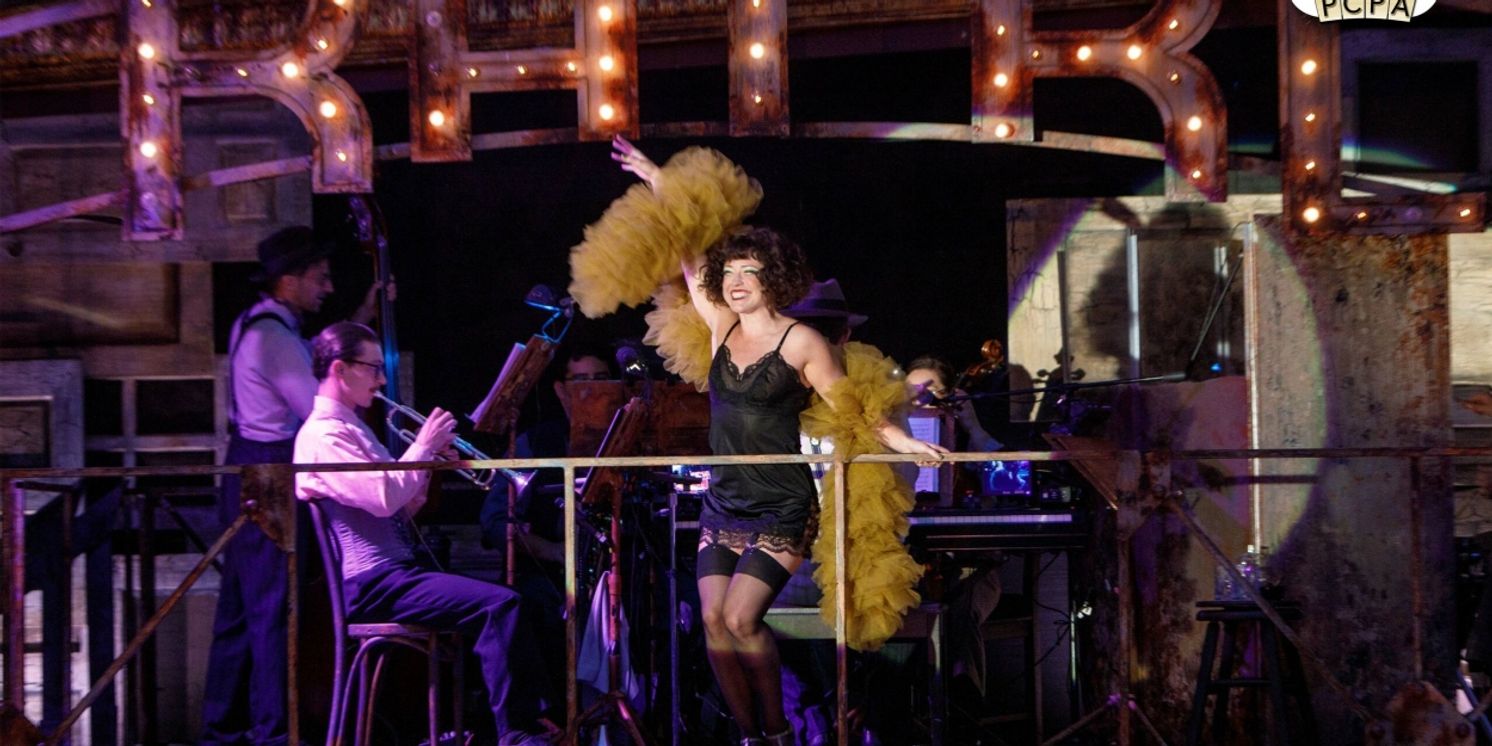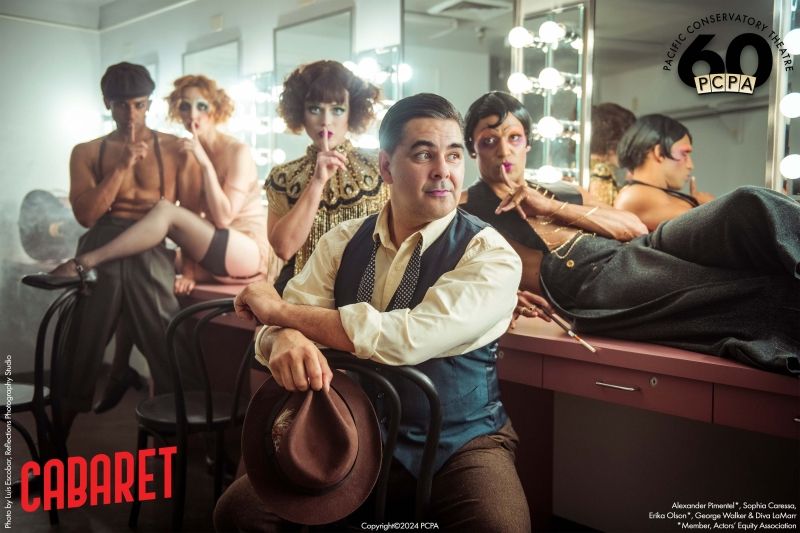Review: CABARET at PCPA: Solvang Festival Theater
Chills and Thrills at the Solvang Festival Theater through August 25

 PCPA’s production of “Cabaret” delivers musical and dramatic thrills as two ill-fated couples try to dance around ascending brutality of the rising Nazi party in Berlin.
PCPA’s production of “Cabaret” delivers musical and dramatic thrills as two ill-fated couples try to dance around ascending brutality of the rising Nazi party in Berlin.
The sun began setting at the start of “Cabaret’s” opening performance. The weather, which had been a steamy 85 degrees, cooled slowly and then all at once. Just like bankruptcy and fascism, as the writers say. Experienced patrons of the outdoor theater arrived ready to fend off the inevitable chill, arms laden with fluffy blankets and insulating cushions. Some newcomers were caught unawares, failing to imagine the blistering heat yielding to the cold.
The characters in “Cabaret” similarly divide into those who imagine things changing for the worse, and those who believe the status quo won’t ever change. Fraulein Schneider (Kitty Balay) who has recently been charmed out of her solitary life by the Jewish fruit seller, Herr Schultz (Billy Breed), is familiar with fickle Frau Fortune, as she testifies in her song “So What?” Some actors fall into the trap of playing the Fraulein’s world-weariness. Not so, Kitty Balay, who crafts a nuanced portrait of someone fighting valiantly against her fears and cynicism.
Balay and Breed soar with delight in their sweet duet “A Pineapple.” It’s all the more agonizing when the threat of the Nazis taking power makes a coward out of Fraulein Scheider. Balay gives her character every reason to pity her as she rationalizes her choices in “What Would You Do?” A truly moving portrait.
The Kit Kat Club’s headliner, its chanteuse, and gin liquor’s biggest fan, Sally Bowles (Erika Olson), actively avoids politics and basic responsibility. She chases pleasure and finds a kindred hunter in Cliff (played by the reliably superlative George Walker). Erika Olson allows the audience to glimpse the desperation behind Bowles’ mask of insouciance. She begins her last song, “Cabaret,” as a lament, which builds to a victory anthem: pleasure is asserted in defiance against fascism. I wish I had a recording of it. It was that good.
Director Emily Trask brings an original spin to the Emcee’s (played as a beguiling presence by Steve Pacek) song and dance number, “If You Could See Her.” For those who haven’t seen the musical before, I will avoid spoiling anything by simply suggesting you read the Director’s Note in the program for the historical resonance of her interpretation of the scene. Trask also crafts a chilling symbolic image for the musical’s finale, putting a novel touch on a tradition originating in director Sam Mendes’ 1993 production.
The production dazzles with powerful imagery, sensuality, tawdriness, and vivacity that rushes energy across the audience. It earns those last moments of chilling reversal. So “put down your knitting, your book, and your broom, it’s time for a holiday” and go to "Cabaret."
Reader Reviews
Videos
